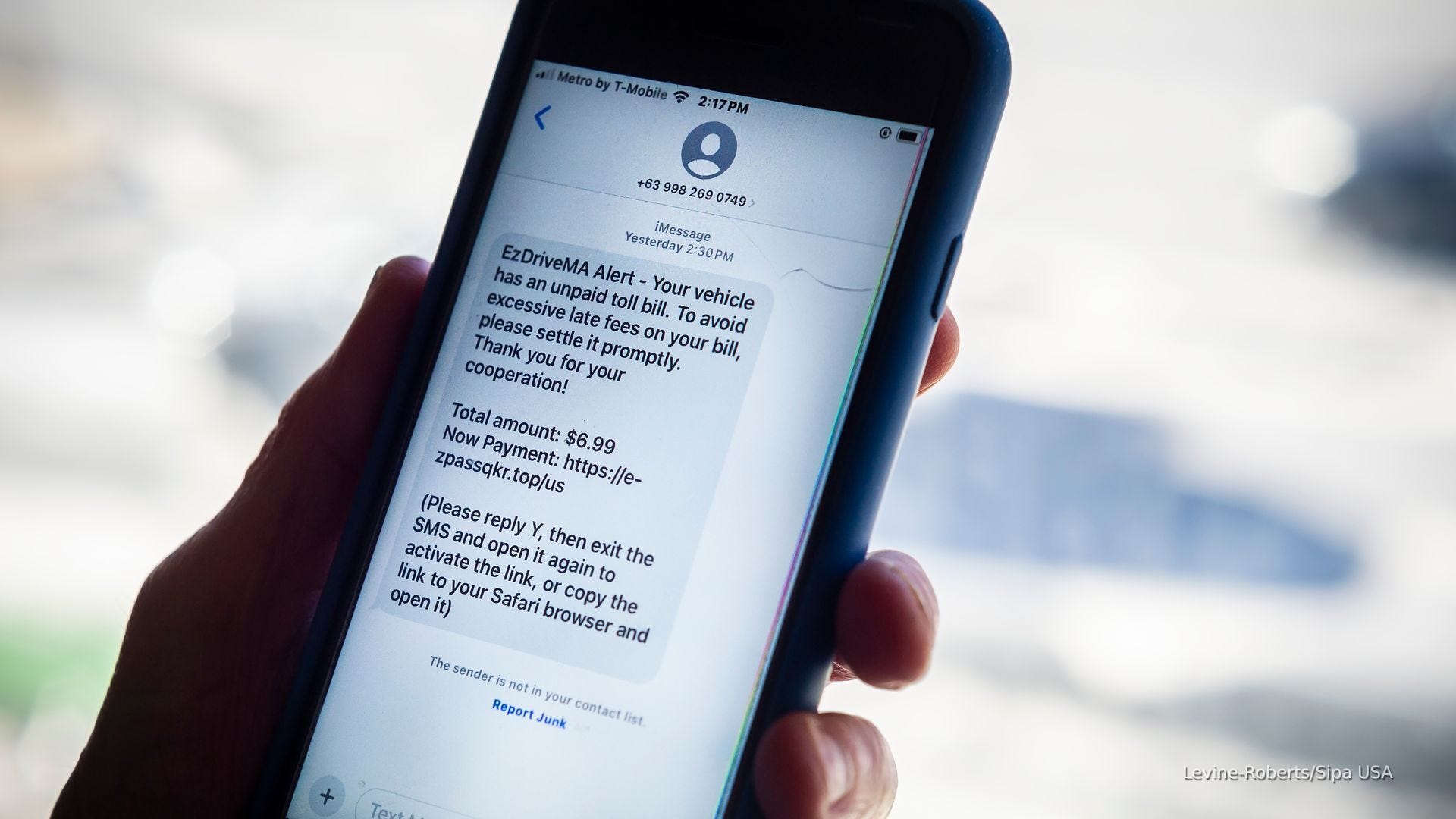Scammers are posing as toll collection services. How to avoid becoming a victim of fraud.

- Smishing scams involving fake toll payment requests are targeting Americans nationwide.
- These scams often involve text messages requesting payment or personal information.
- Government agencies and toll services are urging people to be cautious and avoid clicking on suspicious links or providing personal information.
Have you been getting text messages from odd area codes and email addresses saying you owe toll payments?
Do not submit any card information or click the link.
Americans nationwide are receiving fake SMS messages claiming to concern unpaid tolls. Some request a "Y" response to share a link for payment and others request personal information. The FBI's Internet Crime Complaint Center (IC3) released a statement last April stating over 2,000 complaints were made regarding "smishing" scams impersonating toll collection services.
"IC3 complaint information indicates the scam may be moving from state-to-state," said the FBI.
The FBI said phone numbers and toll service will change across states. Other toll collection services like PA Turnpike and FasTrak in addition to New York have also reported text scams and are notifying customers on their website with alert banners.
New York State Gov. Kathy Hochul also weighed in on the smishing scam.
"Public safety is my top priority, which is why I’m urging New Yorkers to take caution against senseless scammers sending fake E-ZPass text messages in an attempt to collect money for fake, unpaid tolls," Hochul said in a recent press release from the governor's office.
"Consumers should know that E-ZPass, or Tolls By Mail, will never send a text or email requesting personal, sensitive information."
In 2023 New York state received 26,948 internet crime complaints totaling $750 million in losses. The data also shows senior citizens as the highest targeted group.
How you can avoid smishing scams
Over $11 million was lost due to over 9,000 reported phishing scams in upstate New York regions in 2023, according to the Better Business Bureau of Upstate New York. Here are some ways the FCC says you can avoid smishing scams:
- Never click links, reply to text messages or call numbers you don't recognize.
- Don't respond, even if the message requests that you "text STOP" to end messages.
- Delete all suspicious texts.
- Make sure your smart device OS and security apps are updated to the latest version.
- Consider installing anti-malware software on your device for added security.
- Protect any sensitive personal information — bank accounts, health records, social media accounts — by using multi-factor authentication to access it.
What to do if you think you've been a victim of a smishing scam
E-Z Pass and Tolls By Mail says if you receive a message from someone stating they're from either entity and are asking for personal information, don't give them the information they're requesting. Instead, call the E-Z Pass NY Customer Service Center at 1-800-333-8655 or the Tolls By Mail Customer Service Center at 1-844-826-8400.
If you think that you've been a victim of a smishing scam, you should contact law enforcement to report the scam, the FCC says, as well as file a complaint with the FCC and Federal Trade Commission.
Kalyn Grant reports on public service issues for the Press & Sun-Bulletin, focusing on schools and community impact. Have a story to share? Follow her on Instagram @KalynCarmen and on Facebook under Kalyn Kearney. Get in touch at kcgrant@gannett.com.